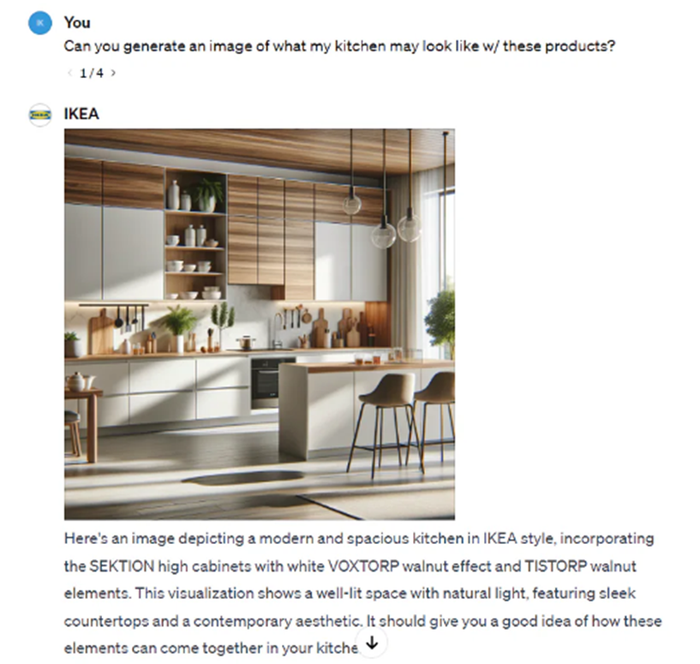AI News Roundup: AI PCs to Dominate Market by 2027
Also – EY, Dell partner on edge computing lab and Opera seeks to unseat Apple's Safari

AI Business brings you the latest news and insights from across the AI world.
To keep up to date with coverage of all things AI, subscribe to the AI Business newsletter to get content straight to your inbox and follow the AI Business Podcast on Apple and Spotify.
IDC: AI PCs will dominate market by 2027
IDC is predicting that 60% of all PCs shipped globally will be AI PCs by 2027. These are PCs with specific system-on-a-chip (SoC) capabilities designed to run generative AI locally.
The forecast calls for nearly 50 million AI PCs to be shipped this year rising to 167 million by 2027.
Processing AI workloads locally on a PC typically has been a challenge since the CPU, GPU or combination of the two can degrade performance and battery life since these chips are not meant for AI tasks.
But now, chipmakers are introducing AI-specific silicon to their SoCs called neural processing units (NPUs) that can run AI tasks more efficiently.
IDC named three types of AI PCs:
-Hardware-enabled AI PCs: PCs with an NPU that offers less than 40 tera operations per second (TOPS) performance. It enables specific AI features within apps to run locally. These chips are being shipped today.
-Next-generation AI PCs: PCs with an NPU and TOPS performance of 40 to 60, plus an AI-first operating system that “enables persistent and pervasive AI capabilities in the OS and apps.” Shipments should start in 2024.
-Advanced AI PCs: PCs with more than 60 TOPS of NPU performance. Chips for these have not been announced but IDC expects them to come in the near future. (IDC’s current forecast of AI PCs does not include this category of PCs.)
EY, Dell partner on edge computing lab
Consulting giant EY is partnering with PC-maker Dell to launch EY Edge Technologies Lab to create industry-specific use cases in edge computing. With compute right on the device as opposed to the cloud, processing is faster and the data is more secure, the companies said.
Clients can test solutions in the lab to see what works best for their business operations. The initial focus on the lab is on the manufacturing, life sciences, health care, consumer products and utilities industries. An example use case is deploying an IoT solution in a manufacturing process.
The lab will use Dell’s NativeEdge software platform plus Dell’s edge gateway, PowerEdge servers and OptiPlex desktop. The technologies of Microsoft, PTC, GE Digital, Snowflake and other companies will also be used at the lab.
IKEA launches generative AI assistant
Furniture retail giant IKEA has launched a generative AI assistant that aims to help users find home furnishings, design their living spaces and shop for products.
The assistant is available only in the U.S. in ChatGPT Plus, which costs $20 per month. It will roll out to more cities as ChatGPT becomes available in those regions.

IKEA said the assistant will give users “personalized furniture and décor suggestions” based on factors such as personal style, room size, budget and other factors.
Opera aims to replace Apple’s Safari
Norwegian browser company Opera is gunning to replace Safari as the default web browser on iOS devices, following the European Digital Markets Act (DMA) mandate for Apple to open up its ecosystem to third-party EU users and developers.
Jørgen Arnesen, executive vice president of mobile at Opera, applauds the DMA’s rules that he said is aimed at fostering competition. Opera wants to offer users an alternative to Safari as the default browser − through a browser choice screen on iOS that Apple will provide.
Currently, there is no way to switch default search engines on iOS devices. To use another browser, users have to download an app from the Apple app store. But that means users have to take an extra step to do searches compared to using the default search.
Once the DMA takes effect in March, Opera plans to reintroduce its AI-centric web browser called Opera One, which first came out last summer. It includes an embedded generative AI assistant called Aria, which was developed with OpenAI but with additional capabilities.
Opera said it is enhancing its browser even more and will roll out the new version in coming months.
Read more about:
ChatGPT / Generative AIAbout the Author(s)
You May Also Like


.jpg?width=700&auto=webp&quality=80&disable=upscale)
.jpg?width=700&auto=webp&quality=80&disable=upscale)
.jpg?width=700&auto=webp&quality=80&disable=upscale)
.jpg?width=300&auto=webp&quality=80&disable=upscale)
.jpg?width=300&auto=webp&quality=80&disable=upscale)
.jpg?width=300&auto=webp&quality=80&disable=upscale)
.jpg?width=300&auto=webp&quality=80&disable=upscale)
.jpg?width=300&auto=webp&quality=80&disable=upscale)